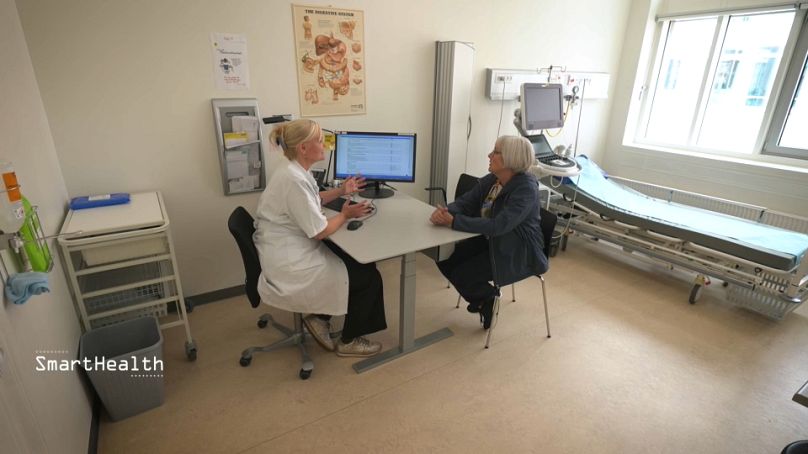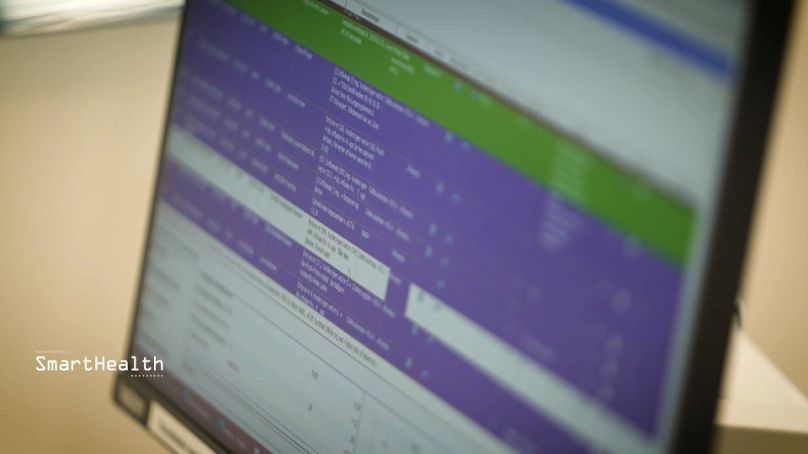A a time when the sharing of medical information is a critical issue for our healthcare systems, patients have more say than ever in helping the medical industry create products and services that are tailored to their experience.
Can the patient's perception of the disease become part of the treatment?
In Denmark this approach is a reality. Euronews explored how this became possible.
Hanne Dalgaard Christensen is a 57-year-old Danish pensioner. She stopped working due to a severe intestinal disease and has had to undergo regular check-ups ever since.
Thanks to the Patient Reported Outcome questionnaire, she can inform the hospital about any developments with her disease, thus improving her knowledge regarding her own health and improving the efficiency of the next consultation.
"It’s very useful, because when I go to the doctor, I often forget to tell her some details. But here, you have to fill a questionnaire before the consultation. So, you have the time to think about everything, and the doctor will have answers to the questions that can come up during each visit, " says Hanne.
How can PRO improve patient care?
Let's take a closer look at the Patient Reported Outcomes (or PRO). This online questionnaire was introduced into the Danish health care system, first for neurology and later extended to other medical fields. It includes questions on specific symptoms, quality of life and daily activities.
This initiative allows for greater involvement from the patients and improves their knowledge of their condition, while Health professionals gain first-hand information to help them refine their treatment approach.
At the University Hospital of Aarhus, Denmark, this online service is mainly used for cases of chronic diseases, which generally require regular check-ups.
"PRO is a brilliant way of getting an insight into a patient's symptoms prior to seeing them in the outpatient clinic. When we see the patient in clinic, we already have a lot of answers and we then know what we should focus on: whether there are any symptoms related to that chronic illness or whether we need to alter their medical treatment," explains Dr.Mette Julsgaard, Gastroenterologist at the Aarhus University Hospital.
Online healthcare spread Europe-wide?
This approach, which relies heavily on the collection and sharing of medical information, is an example to follow for the future European Health Data Space, which will give a cross-border dimension to this type of method.
Another feature of the Danish initiative is that artificial intelligence is used to perform an initial screening of information.
Lisbeth Kallestrup, Director of Quality and Patient Involvement of the Aarhus University Hospital explains how the system works for them.
"The questionnaires are processed with an algorithm that is programmed to filter patient needs and patientcare urgencies. For example, in the first category the patient is fine and we do not need to talk with or see the patient. Next, is the "yellow" category, where we will see if it's necessary to make a telephone call for the patient. Finally we have the "red" category and there it is necessary to see the patient."
PRO is a useful tool for regularly monitoring patients with chronic diseases, and allows doctors to be more reactive even before the scheduled consultation. It allows doctors to prioritise the relevant patients that need to be seen.
At a time when the sharing of medical information is a critical issue for our healthcare systems, patients have more say than ever in helping the medical industry create products and services that are tailored to their experience.












